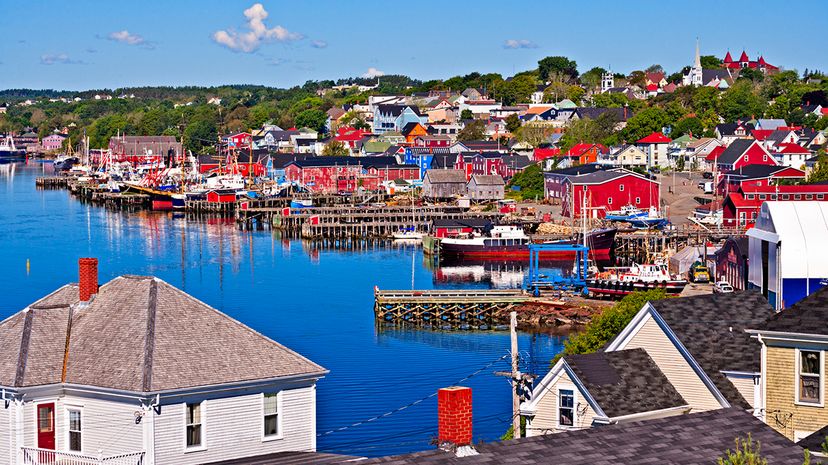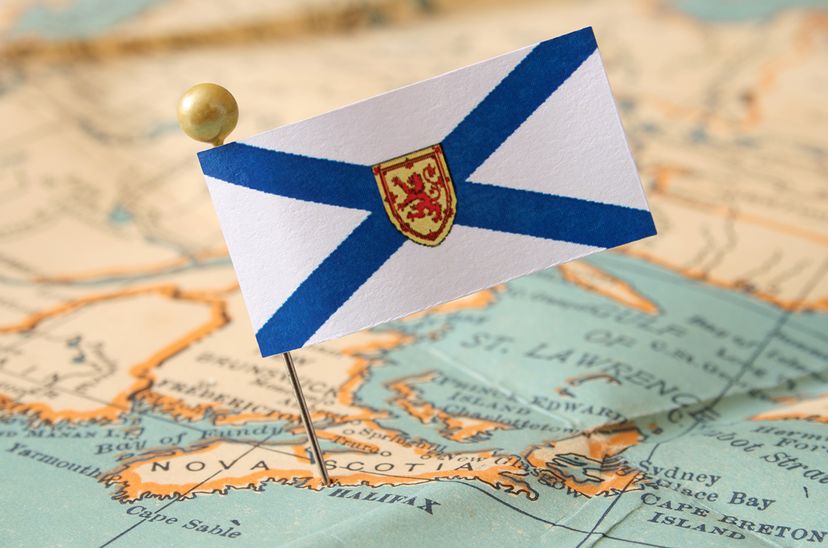
Ever wonder how North American places got their names? The provinces of Canada differ in personality just as much as New York does from California, and so do their titles.
Newfoundland, a province on Canada's east coast, has English roots in its nomenclature. King Henry VII of England referred to the territory John Cabot came upon in 1947 as "New Found Launde." Farther south on Canada's east coast, New Brunswick also sports a purely English name, albeit with German origins. When the province was established in 1784, it was named New Brunswick in honor of King George III, who also happened to hold the title of Duke of Brunswick in Germany. And head even farther south to what's the United States, and New England is a whole region unto itself.
Advertisement
Neighboring Nova Scotia's name, however, has a different story to tell. While most of North America's places have names emanating from English, Spanish, French and other colonizing languages — and a fair amount pay homage to native people pushed aside in the process — Nova Scotia is the one North American region with a Latin name.

Nova Scotia is Latin. The word nova is the feminine form of novus, meaning "new", and Scotia means Scotland. Thus, Nova Scotia in Latin is literally "New Scotland." Interestingly enough, Scotia is a term ancient Romans used to refer to the people living in Hibernia, which is now Ireland. It wasn't until the Middle Ages that Scotia/Scotland evolved to refer to the region north of England.
Fast-forward to the 1600s, when Scottish poet and courtier Sir William Alexander met James Charles Stuart, who ruled as King James VI of Scotland and James I of England and Ireland. Alexander was recruited to help King James VI and I, as the monarch is known, translate ancient biblical psalms; James is the same king who sponsored the biblical translation that bears his name and persists in modern times.
In 1621, King James VI and I granted large swaths of territory across the Atlantic to Sir William, who was also an explorer, and appointed him mayor — though much of the region was contested by European powers. Previously, the area had been called Mi'kma'ki by members of the First Nations. The French called it Acadia, and the British and Scottish had been referring to it as New Scotland for some time.
The first European settlement in Nova Scotia had been established in 1605, when the French set down roots by establishing the town of Port Royal. After six battles over the ensuing decades, the English conquered the French forces. For three years starting in 1629, Nova Scotia became a Scottish colony established by Sir William. He officially named Nova Scotia to honor his monarch's role as king of Scotland, and the literary-minded Sir William opted for the Latin name.
After centuries of varying external rule, Nova Scotia officially joined the Canadian confederation in 1867, bearing Sir William's Latin derivative, which had become the official and enduring label for the Atlantic province.

Advertisement